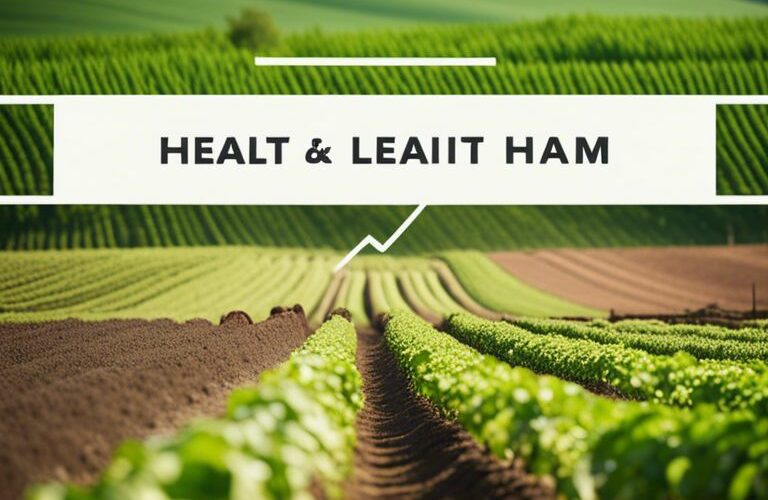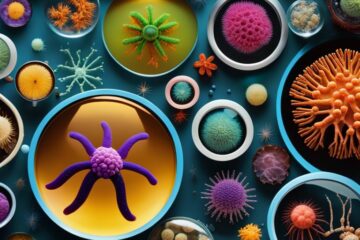Just as agricultural pesticides have revolutionized farming by increasing crop yields and reducing losses due to pests, a shadow of concern looms over the long-term health impacts they may have on humans and the environment. While these chemicals have undeniable benefits in the short term, the accumulative effects of pesticide exposure are a growing cause for worry. This blog examines into the debate surrounding the use of agricultural pesticides, shedding light on whether the short-term gains are worth the potential risks to our long-term health and well-being.
Table of Contents
Understanding Pesticides
Before delving into the debate surrounding agricultural pesticides, it is crucial to understand the basics of these chemical substances. Pesticides are chemicals used in agriculture to control, repel, or eliminate pests that can damage crops and cause economic losses. While pesticides have proven to be effective in enhancing crop yields and protecting plants from harmful insects, their use comes with potential risks to human health and the environment.
Types of Pesticides Used in Agriculture
For effective pest control in agriculture, farmers use various types of pesticides. These include insecticides to target insects, herbicides to control weeds, and fungicides to combat fungal diseases. Additionally, rodenticides are used to manage rodent populations that can damage crops. Any misuse or overuse of these pesticides can lead to contamination of soil, water, and air, posing serious health risks to humans and wildlife.
| Insecticides | Target insects |
| Herbicides | Control weeds |
| Fungicides | Combat fungal diseases |
| Rodenticides | Manage rodent populations |
Mechanisms of Pest Control
One of the key mechanisms by which pesticides control pests is through contact toxicity. When pests come in contact with the pesticide, it can either be absorbed through their skin or exoskeleton, leading to their eventual demise. Systemic pesticides are another type that are absorbed by the plant and distributed throughout its tissues, making the entire plant toxic to pests that feed on it. Any disruption in these mechanisms can result in pesticide resistance among pests, rendering the chemicals less effective over time.
Pest control methods also include pest growth regulators, which interfere with the normal growth and development of pests, ultimately leading to their inability to reproduce. These chemicals can help reduce pest populations and minimize crop damage without causing immediate death to the pests. Understanding the different mechanisms of pest control is crucial for farmers to effectively manage pest populations while minimizing the negative impacts on the environment and human health.
Short-Term Benefits of Pesticides
While the use of agricultural pesticides has been a topic of debate in recent years, there is no denying that they provide certain short-term benefits to farmers. These benefits often include increased crop yields and economic advantages that can help sustain agricultural operations.
Increased Crop Yields
Any farmer will tell you that the primary goal of using pesticides is to protect their crops from pests, diseases, and weeds. By effectively controlling these threats, pesticides help to ensure that a higher percentage of crops reach maturity without being damaged or destroyed.
Furthermore, pesticides can help farmers produce larger, healthier crops by preventing yield loss due to pest infestations. This increase in crop yields not only benefits farmers financially but also contributes to food security by ensuring a more abundant supply of crops for consumption.
Economic Benefits for Farmers
Economic benefits for farmers are another significant advantage of using pesticides in agriculture. Pesticides can reduce the likelihood of crop failure, resulting in more consistent and predictable yields that can help stabilize farmers’ incomes.
This financial stability can allow farmers to invest in their operations, purchase new equipment, or expand their acreage. Additionally, the use of pesticides can lower production costs by minimizing the need for expensive reapplications or interventions to address pest damage.
Long-Term Health Concerns
Impact on Human Health
Long-term exposure to agricultural pesticides poses significant risks to human health. Studies have shown that prolonged exposure to these chemicals can lead to a range of health issues, including cancer, neurological disorders, reproductive problems, and respiratory conditions. Children and pregnant women are particularly vulnerable to the adverse effects of these chemicals, as their developing bodies are more sensitive to the toxic effects of pesticides.
Furthermore, residues of pesticides can linger on fruits, vegetables, and grains even after washing or peeling, leading to continued exposure through the food supply. As these chemicals accumulate in the body over time, they can have cumulative toxic effects that may not manifest until years later, making it challenging to pinpoint the exact cause of health problems.
Environmental Consequences
Consequences of agricultural pesticides extend beyond the immediate health concerns for humans. These chemicals can contaminate soil, water sources, and the air, posing a threat to ecosystems and wildlife. Pesticides can disrupt the balance of nature by harming beneficial insects, birds, and other organisms that play crucial roles in maintaining a healthy environment.
This widespread contamination can also lead to bioaccumulation in the food chain, where predators accumulate higher concentrations of pesticides than their prey. As a result, top predators, including humans, may experience the most significant impact from pesticide exposure due to this accumulation effect.
Balancing the Scales
Alternative Pest Management Strategies
The issue of agricultural pesticides is a complex one, with far-reaching consequences for both the environment and human health. To address this problem, it is crucial to explore alternative pest management strategies that can help reduce reliance on harmful chemicals. Integrated pest management (IPM) is one such approach that combines various techniques such as biological controls, crop rotation, and the use of resistant crop varieties to tackle pest problems.
The shift towards more sustainable farming practices not only benefits the environment but also helps to safeguard the health of farmers and consumers. By promoting natural predators of pests and nurturing healthy soil, farmers can achieve long-term pest control without resorting to harsh chemicals that have detrimental effects on ecosystems.
Policy and Regulation Changes
Scales As we strive to find a balance between agricultural productivity and environmental health, policy and regulation changes play a crucial role in shaping the future of pesticide use. Governments and regulatory bodies must implement stringent guidelines that restrict the use of hazardous pesticides and encourage the adoption of safer alternatives. By incentivizing farmers to transition towards sustainable practices and providing support for research into innovative pest management solutions, we can create a safer and healthier food system for all.
It is essential for policymakers to prioritize the protection of public health and the environment over short-term economic gains. By establishing robust enforcement mechanisms and monitoring systems, we can ensure that the use of pesticides is carefully regulated to minimize risks and promote long-term sustainability in agriculture.
Final Words
From above discussion, it is clear that the use of agricultural pesticides poses a serious threat to both human health and the environment. While these chemicals may provide short-term gains in terms of higher crop yields and pest control, the long-term consequences could be detrimental. It is crucial for farmers, policymakers, and consumers to consider the potential negative impacts of pesticides on our health and ecosystems. Sustainable agricultural practices that focus on natural pest control methods and organic farming can help us protect our long-term well-being and the health of our planet. It is high time that we prioritize the long-term health of our environment and future generations over short-term gains.
FAQ
Q: What are agricultural pesticides?
A: Agricultural pesticides are chemicals used to control pests such as insects, weeds, and fungi that can damage crops.
Q: How do agricultural pesticides work?
A: Agricultural pesticides work by either killing the pests or inhibiting their growth and reproduction, thus protecting the crops from damage.
Q: What are the potential risks of using agricultural pesticides?
A: The potential risks of using agricultural pesticides include harm to human health, harm to non-targeted organisms, environmental pollution, and development of pesticide resistance in pests.
Q: How can we reduce the negative impact of agricultural pesticides?
A: To reduce the negative impact of agricultural pesticides, integrated pest management practices can be implemented, including using biological controls, crop rotation, and using pesticides only when absolutely necessary.
Q: Are we sacrificing long-term health for short-term gains by using agricultural pesticides?
A: While agricultural pesticides provide short-term gains in terms of protecting crop yields, there is growing concern about the long-term health effects of exposure to these chemicals on both humans and the environment. It is important to carefully weigh the risks and benefits and explore sustainable alternatives to minimize the long-term impact of agricultural pesticides.

Our contributing author is a passionate advocate for eco-friendly living and sustainability. With a background in eco-life, they are dedicated to inspiring and empowering individuals to adopt environmentally conscious lifestyles. Through insightful articles, they share practical tips, innovative solutions, and thought-provoking perspectives to promote a greener, more sustainable world. Join them on the journey towards eco-smart living and discover how small choices can make a big impact. 🌱









